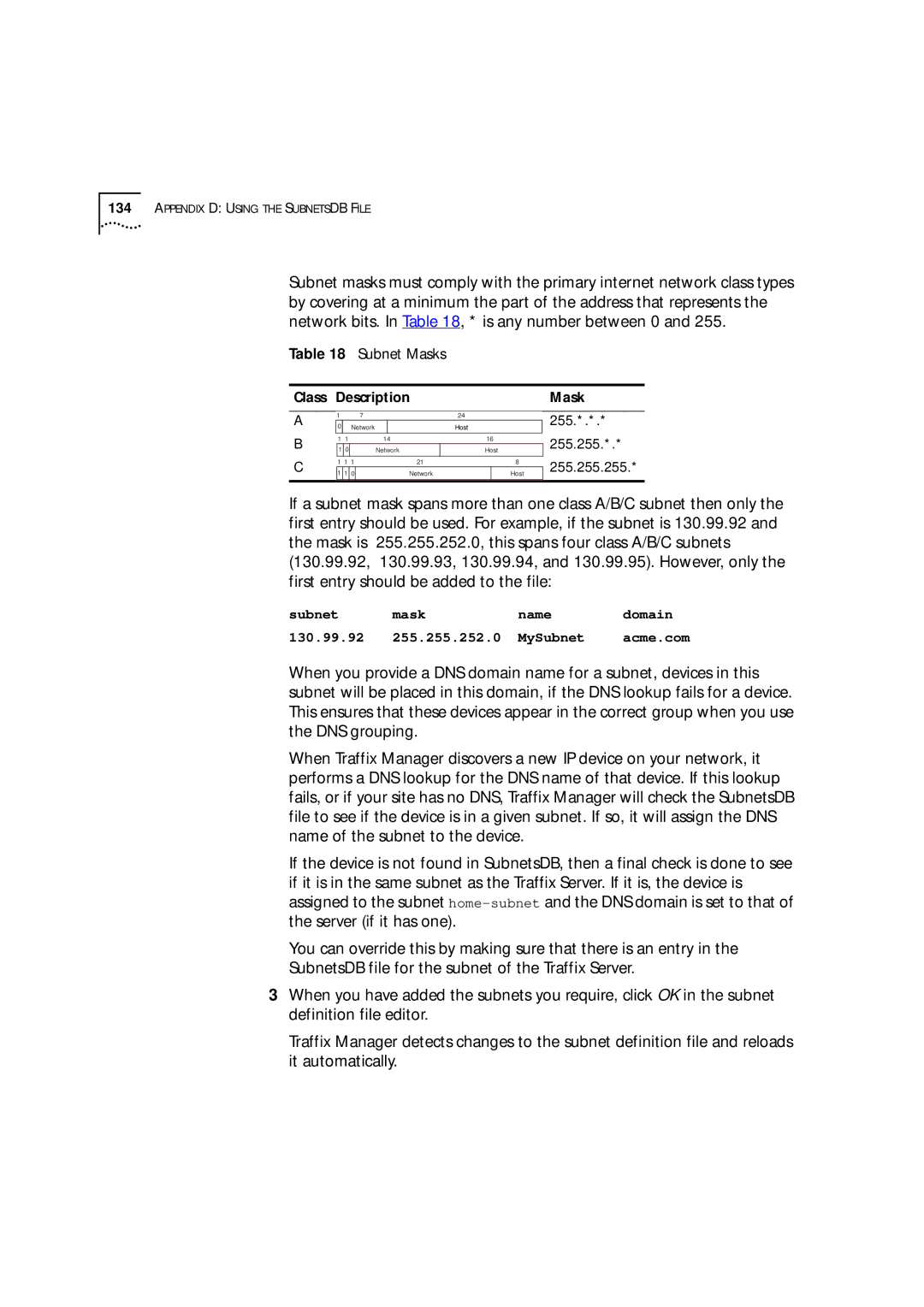
134APPENDIX D: USING THE SUBNETSDB FILE
Subnet masks must comply with the primary internet network class types by covering at a minimum the part of the address that represents the network bits. In Table 18, * is any number between 0 and 255.
Table 18 Subnet Masks
Class Description | Mask |
A
1 7
0 ![]() Network
Network
24
Host
255.*.*.*
B
C
1 1 |
| 14 | 16 | ||
1 | 0 |
| Network | Host | |
|
|
|
|
|
|
1 1 1 | 21 | 8 | |||
1 | 1 | 0 | Network |
| Host |
|
|
|
|
|
|
|
|
|
|
|
|
255.255.*.*
255.255.255.*
If a subnet mask spans more than one class A/B/C subnet then only the first entry should be used. For example, if the subnet is 130.99.92 and the mask is 255.255.252.0, this spans four class A/B/C subnets (130.99.92, 130.99.93, 130.99.94, and 130.99.95). However, only the first entry should be added to the file:
subnet | mask | name | domain |
130.99.92 | 255.255.252.0 | MySubnet | acme.com |
When you provide a DNS domain name for a subnet, devices in this subnet will be placed in this domain, if the DNS lookup fails for a device. This ensures that these devices appear in the correct group when you use the DNS grouping.
When Traffix Manager discovers a new IP device on your network, it performs a DNS lookup for the DNS name of that device. If this lookup fails, or if your site has no DNS, Traffix Manager will check the SubnetsDB file to see if the device is in a given subnet. If so, it will assign the DNS name of the subnet to the device.
If the device is not found in SubnetsDB, then a final check is done to see if it is in the same subnet as the Traffix Server. If it is, the device is assigned to the subnet
You can override this by making sure that there is an entry in the SubnetsDB file for the subnet of the Traffix Server.
3When you have added the subnets you require, click OK in the subnet definition file editor.
Traffix Manager detects changes to the subnet definition file and reloads it automatically.
